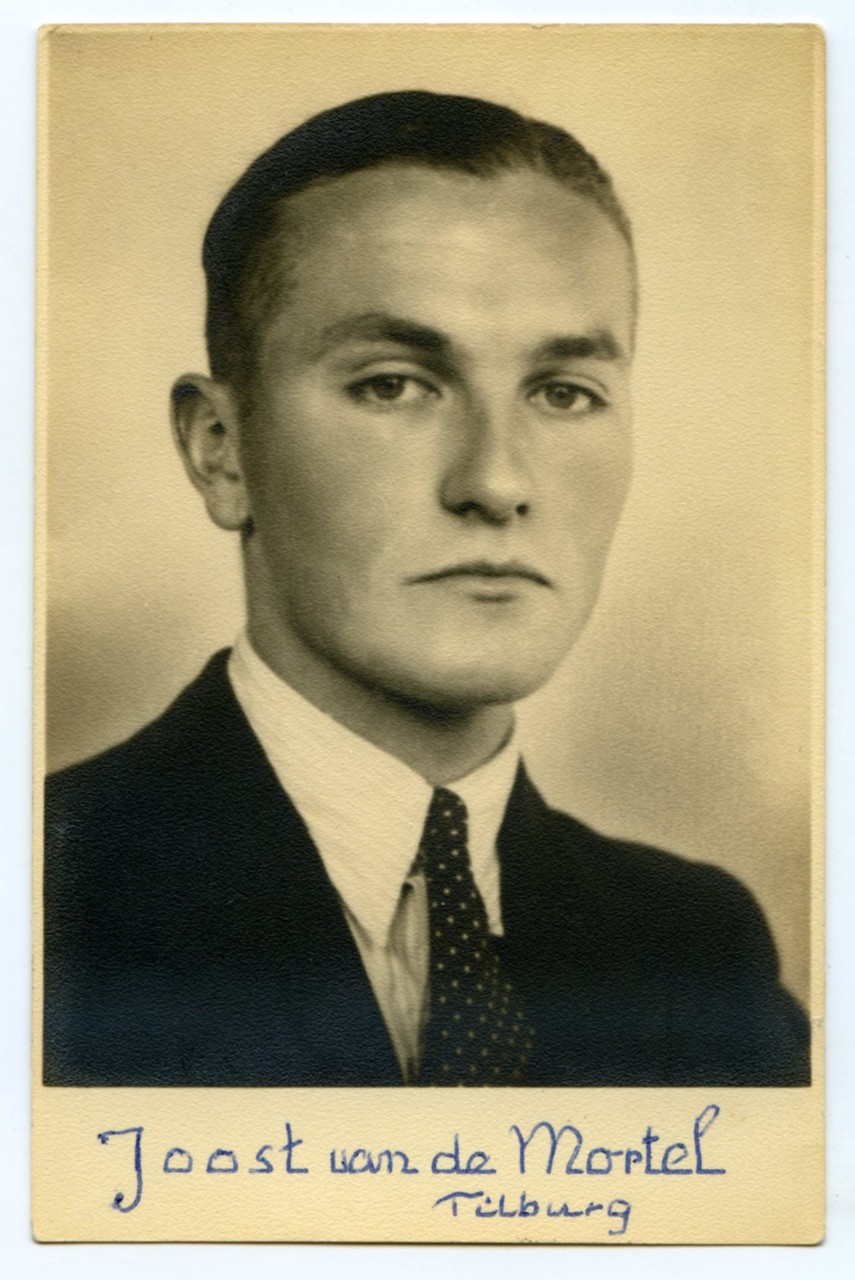Joost van de Mortel helped Allied pilots cross the border, looked after people in hiding, spied and issued illegal identity cards. In October 1942, these activities seemed to be fatal for him when he was arrested in Turnhout, Belgium, but the 23-year-old mayor's son managed to talk his way out of the interrogations — only to immediately resume his resistance work once he was free. In the course of 1943, Joost, although a Catholic, also became involved in the distribution of the Protestant underground newspaper Trouw. This job was not without risk, because the Nazi intelligence agency fanatically hunted down the Trouw group. On 13 April 1944, Joost was arrested once again. This time, he was unable to talk his way out of it. He was imprisoned in Camp Haaren, where more than twenty other Trouw distributors had been incarcerated since September 1943. The group was taken to Camp Vught in July 1944 and Trouw was given an ultimatum: if the publishing of the underground newspaper was ceased, the distributors would not be executed — although it was later argued that the ultimatum was fake and the death sentences of the Trouw members had already been signed. Be that as it may, Trouw did not stop appearing and all 24 distributors were sentenced to death. “We did our duty, we fought for God, Fatherland and People,” Joost told a fellow prisoner the day before his execution.
Six distributors were shot on the evening of 9 August 1944; seventeen others, including Joost, followed the evening after. One distributor was pardoned. The 23 executed Trouw distributors were commemorated two years later on 9 August 1946 at the former execution site. Jan, Joost's father and, as the mayor of Tilburg, also imprisoned for a time, was one of the speakers: “The best way to honour them is to carry on with our heads held high and fulfilling our duty again.” The site now contains a monument with all the names of the men who were executed here. Interestingly, Joost's nephew Roderick became mayor of Vught in 2007.
